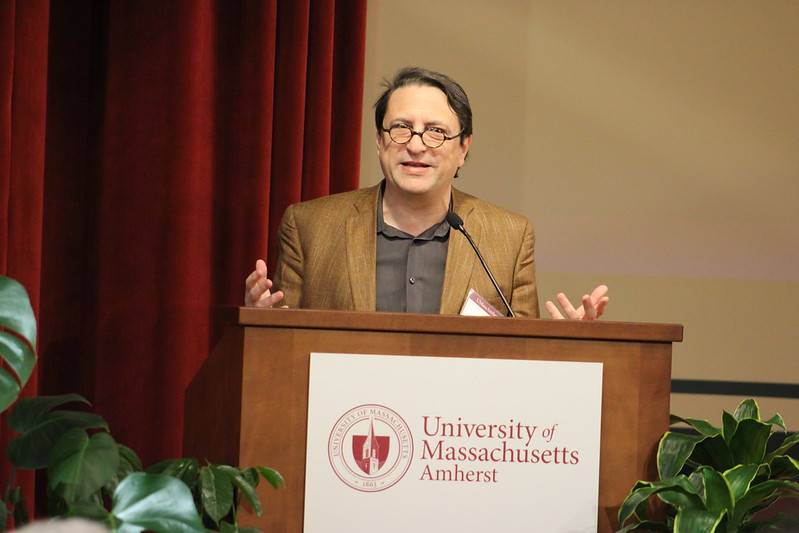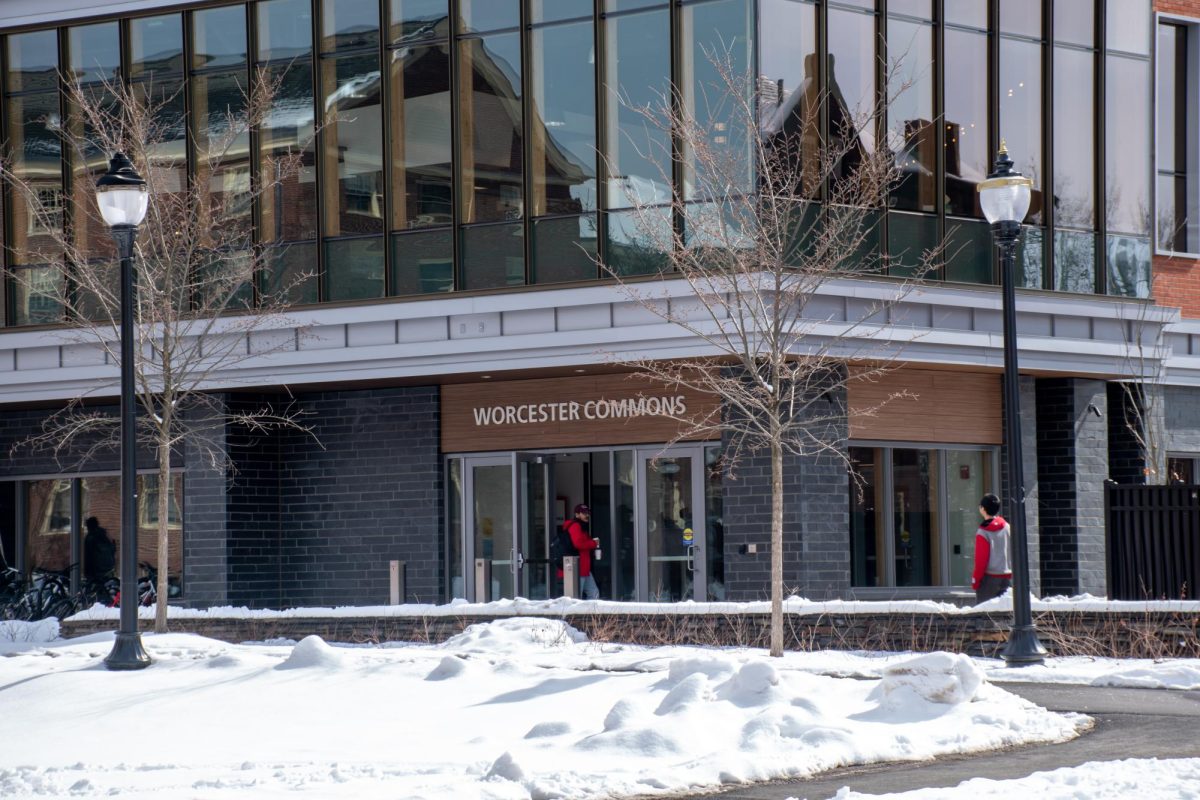On Nov. 3, the University of Massachusetts hosted a lecture with cannabis specialist Peter Grinspoon and legal scholar Jay Wexler, who shared their thoughts on cannabis legalization.
“I want to be the professor that talks about weed…that’s the ultimate goal. It should be normal, so let’s talk about it,” Wexler, a Boston University professor, said.
Wexler’s most recent publication, “Weed Rules: Blazing the Way to a Just and Joyful Marijuana Policy,” was the center of his discussion. The book criticizes the “grudging tolerance approach” many states have to marijuana legalization.
Wexler’s criticism of grudging tolerance stems from the strict limitations that have come with marijuana legalization. Many states give the message that, “it is okay to legalize, but we are not going to be excited about it and we are not going to let you advertise your products as you like,” he said.
The Cannabis Control Commission has recently issued regulations prohibiting local communities from extorting money from licenses. According to Wexler, this means “you can get a community impact fee of 3 percent but nothing more than that.”
Regarding other restrictions that businesses have faced in community agreements he said, “It used to be that in some of these agreements, companies would have to agree to make a $30,000 charity donation or pay for a sports league, or something that would have nothing to do with cannabis.”
Wexler also talked about the relationship between the cannabis market and the government. “We have all of this now intrastate cannabis industry and it’s separate from interstate commerce with the way that cannabis has developed, and partially because the Feds seem to not care about enforcing federal law.”
To combat the grudging tolerance approach, Wexler promotes an alternative: careful exuberance. Wexler coined the term because “we should be excited at this thing that has been demonized and prohibited for so long for no good reason.”
Emphasizing the importance of joy, Wexler discusses a deficit in the public policy aspect. “It is striking how in public policy circles we talk about things like the rights to use cannabis and the benefits of cannabis and its medical benefits and jobs and money and all of that is very important,” he said, “but what we do not seem to talk about in these serious policy discussions is how great weed is.”
This controversial area of social change is what initially drove University archivist Aaron Rubinstein to bring Wexler to speak on campus. Rubinstein believes “social change is something that is not just isolated movements, but in solidarities between movements and, in some cases, conflicts between individuals.”
Currently, the W.E.B. Du Bois Library is collecting material on cannabis legalization along with the general history of drug policy. “We want to be able to call attention to the fact that we have this material,” he said. “A couple summers ago, we had a large symposium celebrating the life of Lester Grinspoon, and [Wexler] was actually a speaker there as well.”
“I think Jay Wexler is a fantastic example of someone who has been at the forefront of looking at marijuana policy from a legal perspective and from a social perspective,” Rubinstein said.
The audience also contained important members of the marijuana movement in Massachusetts, including former chair of the 2016 campaign committee Dick Evans and Northeastern D’Amore-McKim School of Business professor Gastón de los Reyes.
Reyes is working on the Massachusetts Marijuana License Commission. “I was in Jay Wexler’s first class of students at [Boston University],” which is why he came to see Wexler speak, he said.
“I am concerned about businesses going out of business because I am seeing them cutting prices pretty radically and that tells me that they are competing on price,” Reyes noted.
Dick Evans, a current lawyer in Northampton and former chair of the campaign committee for the 2016 legal initiative, has been advocating for marijuana legalization for the past 50 years. He strongly believes “the best kept secret about marijuana is its utter benignity.”
Evans was attracted to the event from a public health and safety standpoint. “I questioned what has been achieved by regulating in terms of public health and public safety,” he said. “Under regulations, it is not a threat to public health and safety. So, what have we achieved? What have we gained?”
He asked this question to Wexler who struggled to provide an answer, which left Evans wondering, “Why do we need to regulate marijuana in the first place, besides keeping it out of the hands of children and protecting revenue? That’s a question that needs to be answered.”
Wexler has a background as a law clerk for United States Supreme Court Justice Ruth Bader Ginsburg and Washington D.C. Circuit Court of Appeals Judge David Tatel. He also was an attorney advisor at the Office of Legal Counsel in the Department of Justice for two years. Currently, he is a professor at Boston University School of Law instructing the popular “Law and Regulation of Cannabis” seminar.
Wexler concluded his presentation with a reflection on the significance of where things lie today in the marijuana legislation. “I think we are at a moment which is really important because now is the time that we have to make sure that protections are written into both state and federal law,” he said, “and are enforced in a way that makes this an equitable industry going forward rather than one that’s just dominated by the bad weed.”
Aanya Panyadahundi can be reached at [email protected].




















Jason Harvey • Nov 9, 2023 at 7:39 am
Great Post! Discussions about marijuana legalization, such as the one hosted by UMass, play a vital role in fostering understanding, addressing challenges, and shaping well-informed policies. By encouraging open dialogue and incorporating diverse perspectives, society can work towards creating balanced and equitable approaches to marijuana legalization and regulation.